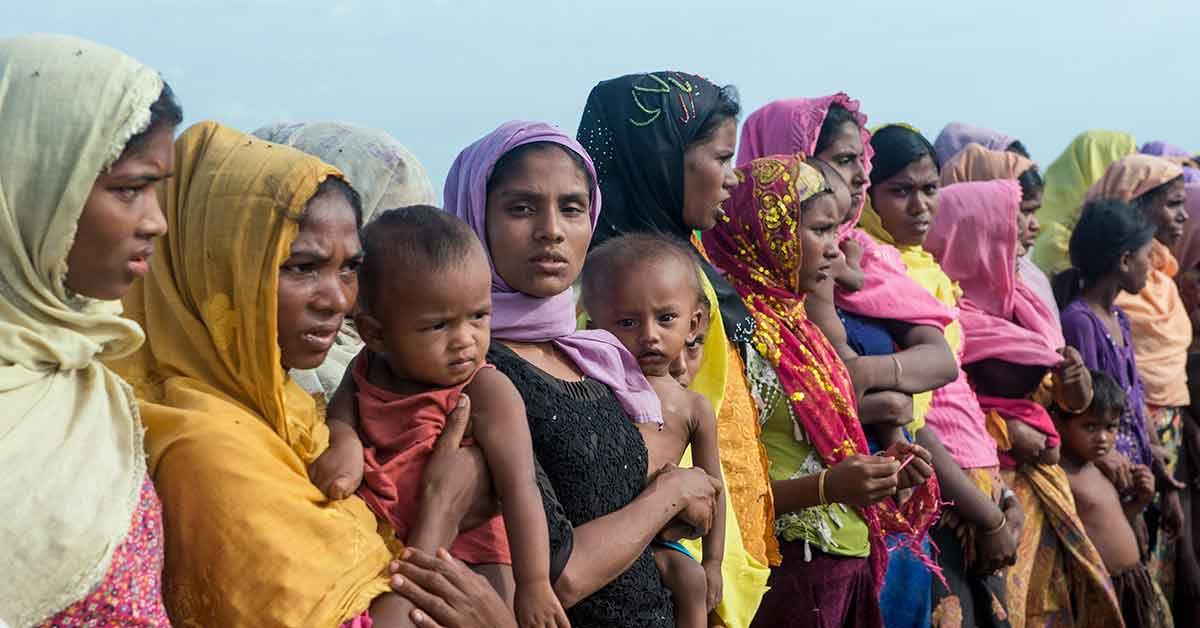A lockdown in Myanmar's conflict-stricken Rakhine was expanded late Wednesday to the entire state, halting the movement of more than three million people as the number of coronavirus cases steadily climbs.
More than 100 new infections were confirmed across Myanmar in 36 hours - the largest jump so far - bringing the total to 580, with most new cases in the northwestern state.
Rakhine is one of the poorest states in the country, with substandard healthcare facilities and a lack of access to education in some remote parts.
It is also home to about 130,000 Rohingya Muslims displaced by conflict and confined to camps under what Amnesty International describes as "apartheid" conditions.
Another 150,000 displaced ethnic Rakhine are scattered across the state having fled clashes between Myanmar's military and ethnic Rakhine insurgents.
State capital Sittwe has been under lockdown and an overnight curfew since the weekend, an order initially extended to four further townships Wednesday morning and then the whole state in the evening.
"Due to a sharp increase of COVID-19 virus cases, people in all townships in Rakhine are to stay at home in order to effectively prevent any further spread," said a statement released by the Ministry of Health and Sports.
Under the new rules, only one member of each household may step out for essential shopping.
Exceptions include civil servants and factory workers.
Local officials toured neighbourhoods in Kyaukphyu township with loudspeakers Wednesday evening, warning residents to wear masks when going outside.
'Common Enemy'
The jump in coronavirus cases comes as the country prepares for national elections, raising concerns the 8 November poll date could be impacted.
Rakhine state, long a flashpoint for ethnic and religious conflict, is home to nearly 3.2 million people, according to a 2014 census.
But unaccounted-for are the hundreds of thousands of marginalised Rohingya Muslims, either confined since 2012 to camps near Sittwe or in villages with heavily restricted freedom of movement further north.
The minority has long battled for recognition and basic rights, including access to healthcare.
Northern Rakhine is also the stage for an ongoing civil war between the military and the Arakan Army, a rebel group seeking more autonomy for ethnic Rakhine Buddhists.
Violent clashes have forced tens of thousands of civilians to flee their homes for displacement camps in an area subjected to an internet blackout for over a year.
The United Nations (UN) announced Wednesday that some of its personnel working in the camps and around Rakhine had tested positive for the virus.
The staff "express their solidarity with the people of Rakhine and everyone affected by COVID-19, a common enemy that does not distinguish between ethnicity or religion", the UN said.
But some locals, like villager Maung Than Tin, remained doubtful the disease was really spreading so rapidly in remote areas.
"I'll believe it only when I see it with my own eyes," said the 40-year-old in Kyaukphyu township. - AFP
